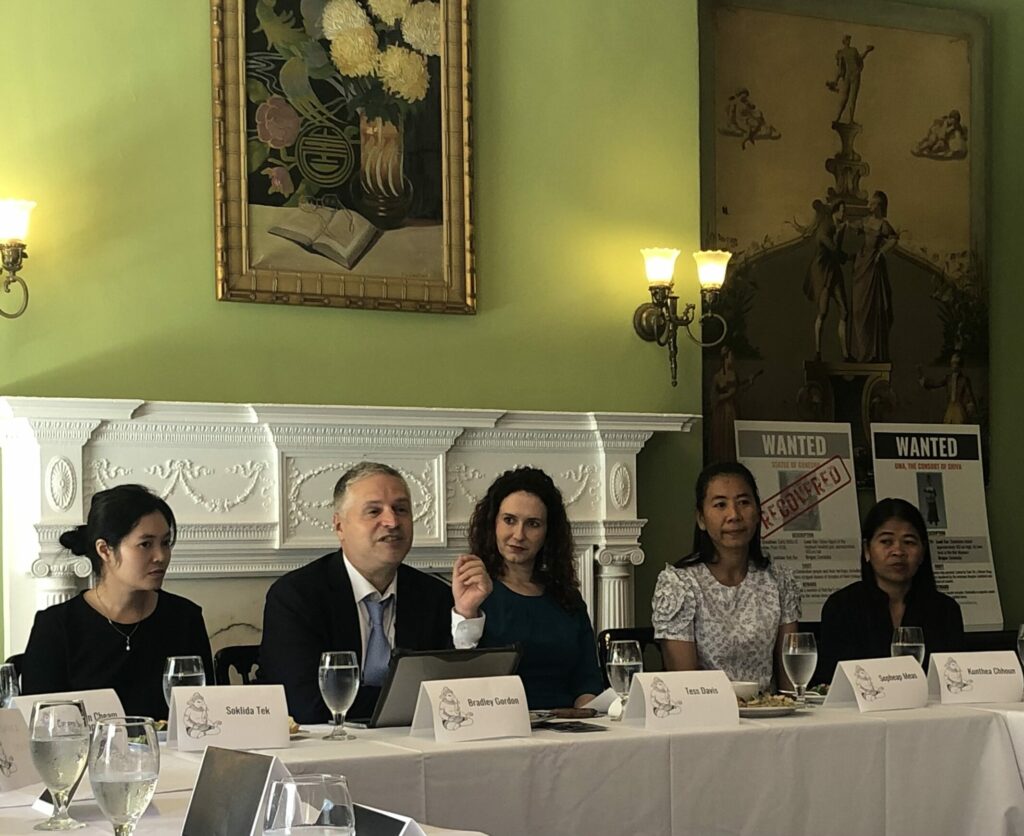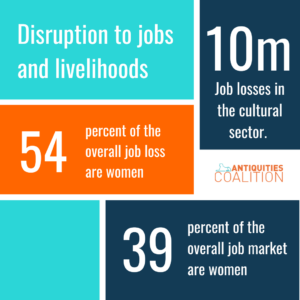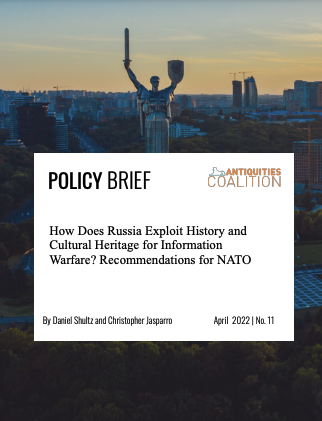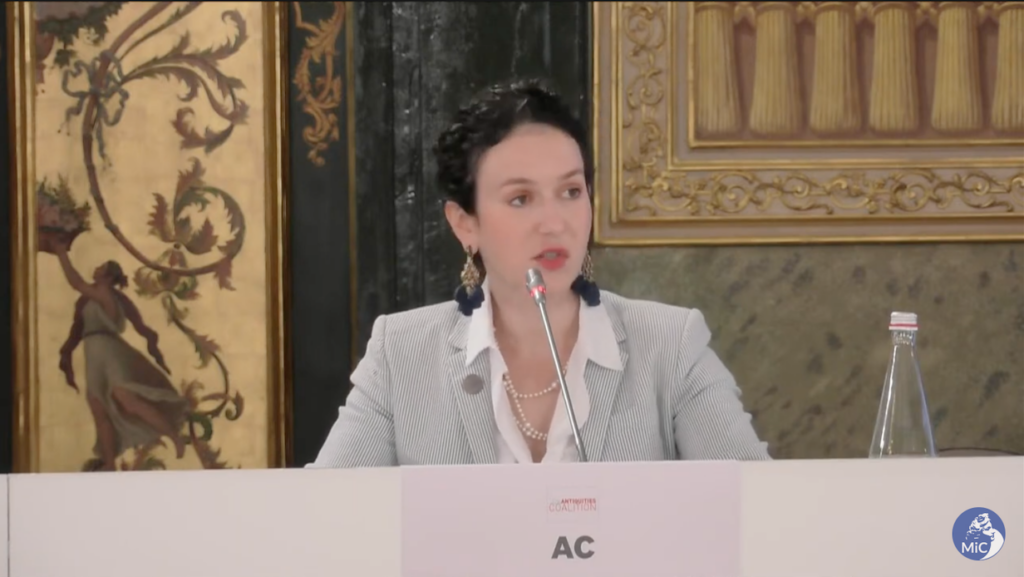Global conflicts in Syria, Yemen, Afghanistan, and now, Ukraine have highlighted the catastrophic impact of war on cultural heritage. With this conflict comes an increase in the looting and illicit trade of antiquities. It’s important that policy makers, as well as the public, understand the stakes and consequences events like global conflict, natural disasters, climate change, and pandemics have on our shared heritage.
On August 15th, top experts from academia, civil society, and law joined the Antiquities Coalition for an important discussion on The Need for Proactive Policy. As evidenced by the situation in Ukraine, our current policy framework is failing. Leaders need to strengthen global efforts against the destruction of cultural objects before it’s too late.
During the webinar, these experts discussed recommendations for how international public and legal policy should take a proactive stance aimed at eradicating threats to cultural heritage globally. The discussion featured key takeaways from the Antiquities Coalition’s Think Tank and our roadmap for the G20, Safeguarding Cultural Heritage in Conflict Zones, as an example of how leaders can strengthen global efforts against the looting and trafficking of cultural objects.
Strategies include:
- Providing sustained focus, support, and funding on investigating and preparing policy to protect cultural heritage.
- Ensuring that existing laws related to the protection of cultural heritage are up to date and enforced, and increasing awareness so that these laws act as a deterrent. New policy is not always needed.
- Creating a warning system in order to prioritize and adapt resources accordingly, so that policy makers have the tools they need when they need them.
- Increasing awareness among policy makers and the public that crimes against cultural heritage are crimes against humanity.








 Following this success, the Antiquities Coalition hosted a roundtable luncheon with a visiting delegation from the Royal Government of Cambodia to celebrate the kingdom’s recent efforts in finding, recovering, and bringing home its looted masterpieces.
Following this success, the Antiquities Coalition hosted a roundtable luncheon with a visiting delegation from the Royal Government of Cambodia to celebrate the kingdom’s recent efforts in finding, recovering, and bringing home its looted masterpieces. Both the Ganesha and another of the masterpieces returned, the Skanda on a Peacock, hailed from Koh Ker, the capital of the ancient Khmer Empire from 928 to 944 C.E.
Both the Ganesha and another of the masterpieces returned, the Skanda on a Peacock, hailed from Koh Ker, the capital of the ancient Khmer Empire from 928 to 944 C.E. 
 Warfare? Recommendations for NATO
Warfare? Recommendations for NATO